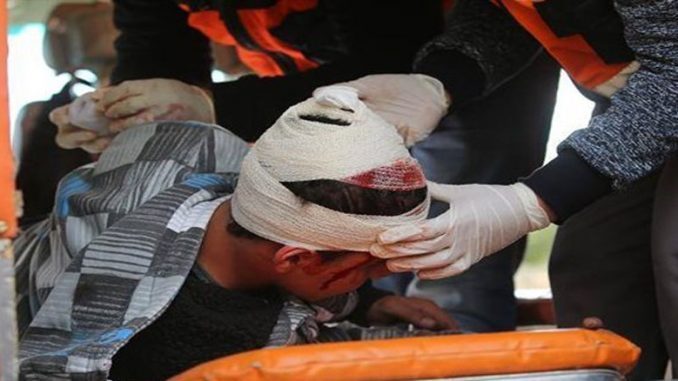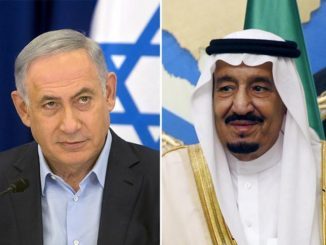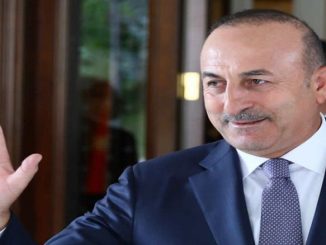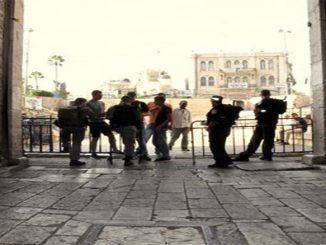
Israeli forces Friday violently suppressed a weekly march in Bilin in the occupied West Bank district of Ramallah, with at least two Palestinians reported injured and tens suffering from tear gas inhalation, while a weekly march was also held in the village of Kafr Qaddum in the district of Qalqiliya.
In Bilin, protesters, who included both Palestinian and international participants, held Palestinian flags and marched through the village’s streets shouting slogans and songs, calling for national unity, resisting Israeli occupation, releasing Palestinian prisoners, and other principles close to the Palestinian struggle.
Coordinator for the popular resistance committee in Bilin, Abdullah Abu Rahma Israeli forces fired tear gas canisters and rubber-coated steel bullets at protesters, causing injuries to two Palestinians.
Abdulkhaliq Barnat, referred to as a “Palestinian boy”, sustained a head injury during the suppression of the march, and was transferred to the Palestine Medical Complex in Ramallah to receive medical treatment, while Ashraf Abu Rahma was treated on the scene by Palestinian medical crews after sustaining an unidentified injury.
Abu Rahma said tens of Palestinians and foreign activists suffered from tear gas inhalation, saying that Israeli forces fired the canisters “heavily” at the demonstrators.
Abu Rahma also highlighted that the march was organized to reject attempts by the right-wing Republican-dominated US Congress to move the US embassy from Tel Aviv to Jerusalem, noting that protestors considered the potential move to be an “execution” of the international stance of establishing a Palestinian state as a solution to the decades-old conflict, while blatantly violating Palestinian rights.
Abu Rahma confirmed that the village would continue protesting until the Israeli occupation is brought to an end, underscoring that the weekly marches against the occupation in Bilin have sustained for almost 12 years.Bilin is one of the most active Palestinian villages in peaceful organized opposition against Israeli policies, as residents have protested every Friday for more than a decade, and have often been met with tear gas, rubber-coated steel bullets, and stun grenades from Israeli forces.
An Israeli army spokesperson said she would look into reports on the suppression of the march.
Popular resistance coordinator in the village, Murad Shteiwi told Ma’an that Israeli forces were heavily deployed in the area during the protest, but did not conduct any military actions against the demonstrators. Typically, such marches in the village have been violently suppressed by Israeli forces through “non-lethal” means, such as firing tear gas and rubber-coated steel bullets at the protesters.Shteiwi also noted that a number of Palestinian youths set tires on fire during the protest.
Residents of Kafr Qaddum began staging weekly protests in 2011 against land confiscations, as well as the closure of the village’s southern road by Israeli forces. The road, which has been closed for 14 years, is the main route to the nearby city of Nablus, the nearest economic center.
Hundreds of Palestinians have been detained during the demonstrations since their start in 2011, and at least 84 protesters have been injured by live fire, including 12 children, Shteiwi told Ma’an during a similar protest last year.
Some 120 others have been detained at demonstrations and were subsequently held in Israeli custody for periods ranging between four and 24 months, Shteiwi said at the time, adding that they have paid fines totaling some 25,000 shekels (approximately $6,488).
Meanwhile, Israeli forces last month became the focus of international condemnation when Israeli forces, wearing matching plain clothes and black ski masks detained a seven-year-old Palestinian during a weekly protest in the village.
B’Tselem strongly condemned the incident at the time, saying that “it does not take a lawyer to know that the detention of a seven-year-old child by soldiers, keeping him by their side as they shoot at his friends, is deplorable and utterly unacceptable.”



